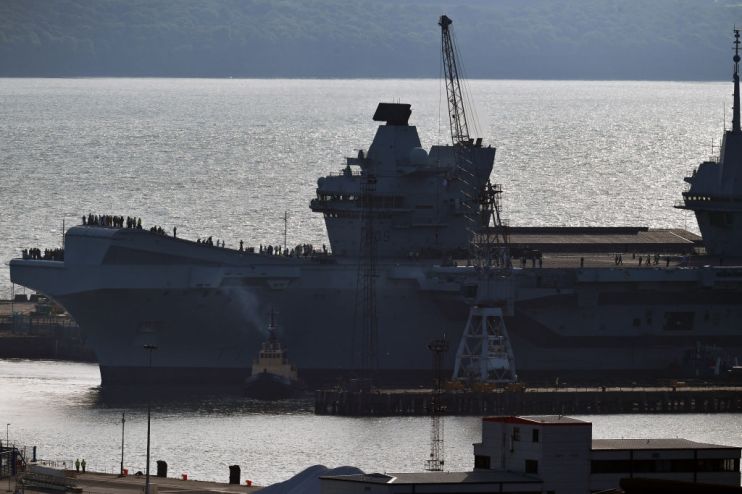Babcock shares slump after firm cuts dividend and profit slips 40 per cent

Shares in Babcock fell over 12.5 per cent this morning after the defence giant warned that the coronavirus pandemic had had a “significant impact” on its finances.
In a trading update, the FTSE 250 firm said that operating profit for the first quarter had fallen 40 per cent year-on-year.
In addition, Babcock has elected to cancel its final dividend for the financial year ending in March, having previously deferred the decision.
Chair Ruth Cairnie said that the firm had cut the payout in order to “prioritise strengthening our balance sheet and reducing net debt”.
“We recognise the importance of dividends to our shareholders and we will resume dividend payments at the earliest opportunity”, she added.
Shares slipped to their lowest levels in 14 years on the back of the news, but later pared their gains slightly.
It said that around half of this profit reduction was due to lower levels of productivity in the core business while Magnox nuclear decommissioning activity, South Africa and land-adjacent market businesses account for the other half.
Underlying revenue for the first quarter was 11 per cent lower than last year, although revenue from the core business grew slightly, demonstrating the high level of continuing work across the majority of our business.
Babcock said that the fall was due to the “necessary safety constraints on close proximity working”, which had directly impacted group margins and profitability.
Before the Open newsletter: Start your day with the City View podcast and key market data
These include restricted access to customer sites, complex safety measures, reduced numbers of staff on site, changed shift patterns and additional costs, it said.
“These have led to slower progress on some work streams which has impacted margins on some of our long term contracts in the quarter”, it added.
Despite the poor performance, Babcock sought to assure investors, saying: “Our substantial long term order book and strong liquidity position underpins our confidence in navigating the short term financial impacts of Covid-19 whilst safeguarding our key capabilities for the future.”
As a result of the ongoing uncertainty surrounding the pandemic, it said that it could not provide detailed financial guidance at this point in the year.
“As we progress through the year, assuming we are able to make steady progress without further major setbacks from Covid-19, we would expect to see a gradual improvement in group performance from the 40 per cent reduction in operating profit in the first quarter”, it said.
“As with previous years, performance for the year is expected to be weighted to the second half.”